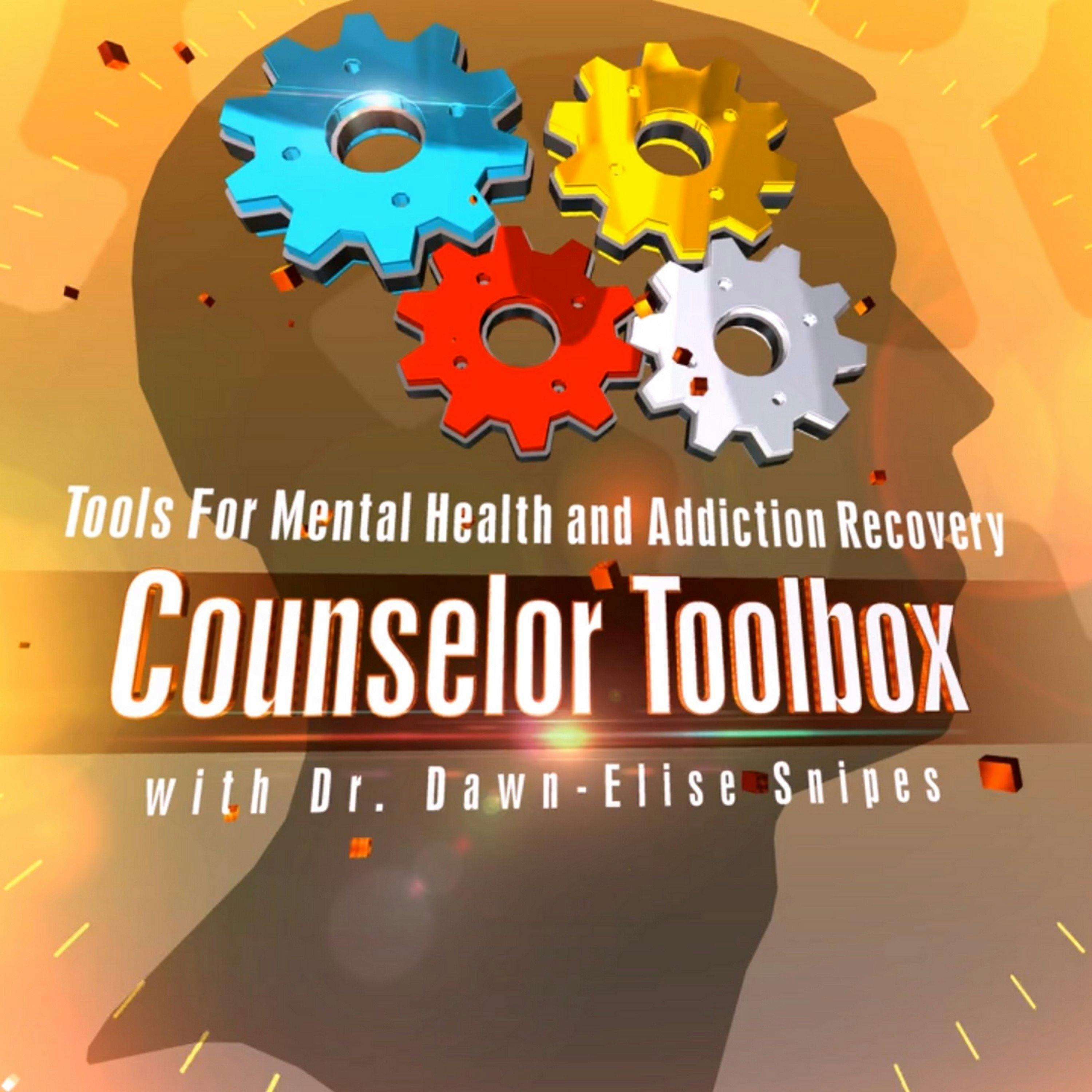|
Description:
|
|
Sponsored by BetterHelp. Clinicians, sign up with BetterHelp to increase your bookings and work from teh comfort of your own home. https://hasofferstracking.betterhelp.com/aff_c?offer_id=20&aff_id=2373
Post Acute Withdrawal Syndrome (PAWS)
Neurochemical Causes & Interventions
Dr. Dawn-Elise Snipes
Executive Director, AllCEUs Education
Objectives
~ Learn what PAWS is
~ Explore why PAWS happens
~ Identify steps to take to reduce and cope with PAWS
What is PAWS
~ PAWS affects people who have engaged in addictive behaviors
~ The effects are based on factors
~ Age
~ Gender
~ Length and amount of use
~ Physical health
~ PAWS begins after acute withdrawal and lasts for up to a year
What Happens
~ Memories of substance use alter brain functioning (electrical currents and neurotransmitter balance) to promote drug seeking behavior and irritability when blocked from goal achievement
~ Cocaine, Amphetamines, Alcohol
~ Reduce the reuptake of dopamine, increase glutamate and, in high concentrations, to inhibit monoamine oxydase A (MAO-A)
~ Alcohol reduces glutamate’s excitatory effect on NMDA receptors and increases dopamine
~ Co-Administration of nicotine and alcohol increases alcohol’s rewarding effects
What Happens
~ Nicotine
~ Nicotine stimulates the dopamine and the reward center and is responsible for the mood elevation and apparent improvement in cognitive function.
~ Chronic stimulation by nicotine the GABAergic neurons are desensitized and thus lose their inhibitory effect on dopamine which reinforces the addiction by inducing craving
~ Opioids: Opioid, Serotonin, Dopamine
~ Benzodiazepines: GABA, Serotonin
Neurotransmitters
~ In chronic substance abuse, the brain comes to rely on the drug to maintain the high degree of pleasure associated with the artificially elevated levels of some neurotransmitters in its reward circuits.
~ The brain can even adapt to these high neurotransmitter levels by making new receptors which produces depression or anxiety and cravings if consumption ceases and neurotransmitter levels return to normal.
Tolerance
~ In a factory think of dopamine like one of the raw materials needed to make a product (happiness)
~ Normally dopamine is on autoshipment—a steady, regular supply to so the factory can produce a steady supply of “happiness”
~ The manager sees a “deal” on dopamine and wants to increase his departments revenue really quickly and get a promotion. He triples the autoshipment.
~ Initially the workers are able to keep up, but this frenzied pace starts causing them to be exhausted and call out sick.
~ To deal with this excess, the factory hires new workers and creates a new assembly line.
~ When the manager reduces the autoshipments back down to the normal amount, there is nothing for the new employees to do and the factory starts losing money (feeling depressed)
~ To balance the budget the manager either has to increase the shipments again (take the drug) or fire the new workers (all ow the brain to heal)
Symptoms
~ Emotional outbursts or lack of emotion
~ Anxiety and irritability
~ Depression and anhedonia
~ Difficulty dealing with stress
~ Fatigue
~ Having a hard time sleeping, strange dreams, and changes in sleep patterns
~ Memory problems that make it hard to learn new things
~ Trouble thinking clearly, making decisions, and solving problems
~ Dizziness, problems with balance and delayed reflexes
Neurotransmitters and Receptors
~ Endogenous opioids reduce the amount of GABA released
~ Reduced GABA increases dopamine
~ Dopamine is the perseveratory neurochemical
~ Norepinephrine is responsible for attention, and alertness
~ Glutamate is the main excitatory neurotransmitter.
~ Serotonin has both stimulatory and calming influences
~ Cannabinoid receptors are involved in regulating mood, memory, appetite, pain, cognition, and emotions.
Neurotransmitters and Receptors
~ Adenosine
~ Adenosine is a central nervous system neuromodulator that has specific receptors. When adenosine binds to its receptors, neural activity slows down, and you feel sleepy. Adenosine thus facilitates sleep and dilates the blood vessels, probably to ensure good oxygenation during sleep.
~ Caffeine acts as an adenosine-receptor antagonist. This means that it binds to these same receptors
Neurotransmitters and Receptors
~ nAChR (Nicotinic Receptors)
~ nAChRs more commonly have a modulatory role through the modulation of neurotransmitter release
~ Has been characterized as an effective anti-pain target that functions through a non-opioid mechanism
~ The developing brain is particularly vulnerable to the harmful effects of drugs of abuse, including cocaine, alcohol & nicotine products, which activate nicotinic acetylcholine receptors (nAChRs).
~ Disruption of nAChR development with early nicotine use may influence the function and pharmacology of the receptor subunits and alter the release of reward-related neurotransmitters, including acetylcholine, dopamine, GABA, serotonin, and glutamate
Interventions (MR ESCAPER)
~ Goal: To regulate the temperature of the “bath”
~ Meditation / Breathing
~ Relationships (with sober social supports)
~ Exercise
~ Sleep
~ Circadian rhythm restabilization
~ Awareness/Mindfulness
~ Pleasurable activities
~ Eat healthfully
~ Relaxation
Summary
~ Recovery involves creating a new life where it is easier to not use
~ Be completely honest with yourself and others
~ Ask for help
~ Practice self-care. Make a daily routine that allows time to rest and relax.
~ Create and maintain your recovery boundaries
~ Identify and stay in touch with your support system. It can be family, friends, counselors, health care providers, spiritual or religious group.
~ Be compassionate and treat yourself with patience and understanding, giving yourself time to heal
|
 More
More
 Religion & Spirituality
Religion & Spirituality Education
Education Arts and Design
Arts and Design Health
Health Fashion & Beauty
Fashion & Beauty Government & Organizations
Government & Organizations Kids & family
Kids & family Music
Music News & Politics
News & Politics Science & Medicine
Science & Medicine Society & Culture
Society & Culture Sports & Recreation
Sports & Recreation TV & Film
TV & Film Technology
Technology Philosophy
Philosophy Storytelling
Storytelling Horror and Paranomal
Horror and Paranomal True Crime
True Crime Leisure
Leisure Travel
Travel Fiction
Fiction Crypto
Crypto Marketing
Marketing History
History

.png)
 Comedy
Comedy Arts
Arts Games & Hobbies
Games & Hobbies Business
Business Motivation
Motivation




